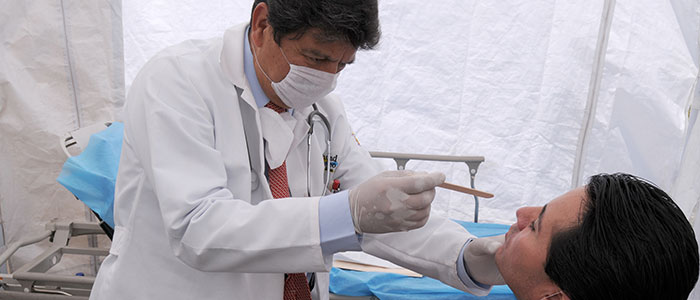Web_MexicanDoctor_shutterstock_29436109.jpg

A doctor a examining patient
The ECA warned that the preparedness and contingency plans of both the European Commission and the bloc’s 28 member states were subject to serious cross-border risks due to poor coordination.
Recommendations for improvement from 2013 had not been fully implemented, there is no EU-wide system to address urgent needs for vaccines or other medical countermeasures and early warning systems are due an upgrade, auditors said.
Janusz Wojciechowski, the member of the ECA responsible for the report, highlighted that in a world where international travel and trade are ever-growing, “health security in one member state often depends on that of its neighbours”.
“More needs to be done to address these weaknesses in planning and coordination if EU citizens are to benefit fully from what has been set up so far,” he said.
In 2013, EU law introduced changes to advance planning and response coordination to serious health threats, including biological, chemical and environmental risks.
Such risks could include, for instance, a pandemic influenza outbreak, a chemical waste leak or growing resistance to antibiotics.
Auditors said this was an important step to better preparing the EU for such incidents, through plans on preparedness, joint procurement, surveillance, risk assessments and more, but its implementation was incomplete.
The bloc’s early warning systems, for example, have been operational for several years and could be improved, the auditors said. Meanwhile, the latest procedures for dealing with serious chemical and environmental threats have not been tested.
Examining the EU’s previous attempts to protect its citizens , between 2008 and 2013, auditors found “a lack of sustainable results” that limited its contributions to keeping them healthy.
They also found weaknesses in the commission’s efforts to measure health threats between 2014 and 2020, and a relatively low level of spending on cross-border health during this period, as well as a number of gaps in the commission’s internal coordination of health security activities.
For example, these are often financed by high volumes of funds from a range of different EU programmes and involve myriad different commission services to manage them. Auditors said the risk of overlaps persists and there are opportunities for greater synergies to increase efficiency.
The auditors made a number of recommendations to the commission, whch included improving the sustainability of results from co-funded actions, developing a more structured coordination and speeding up the implementation of the new provisions introduced three years ago.
The European Commission has been contacted for comment.













